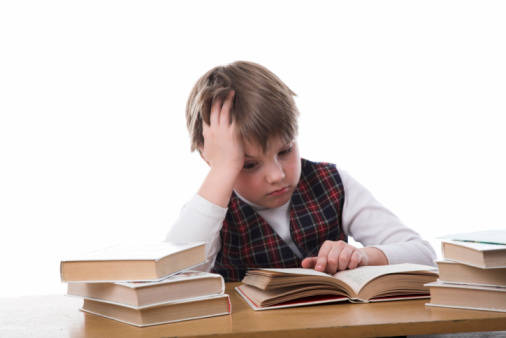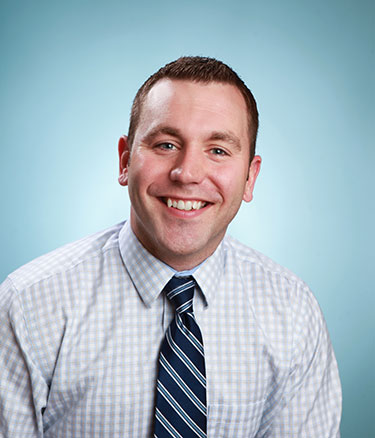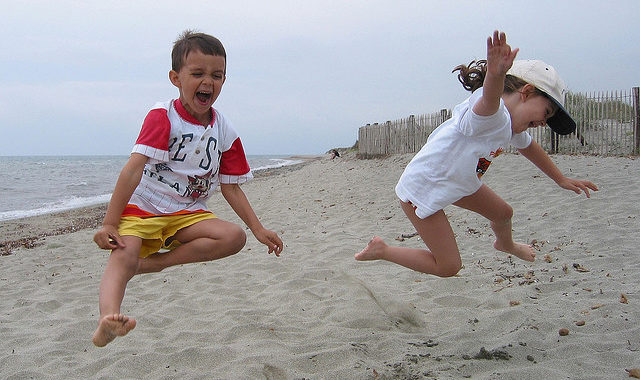ADHD Or Normal?
Does your child daydream often? Does he struggle with forgetfulness and often find himself searching for lost things? Is he restless and frequently squirms or fidgets?If you answered yes to any of these questions this could be signs that your child suffers from Attention Deficit Hyperactivity Disorder (ADHD). Or it could mean your kid is just a kid. So how do we understand the difference?
ADHD is a neurodevelopment disorder that typically presents symptoms in school age children. Many of these children are often labeled as “lazy,” “troublemakers,” or “class clowns.”Not only can these labels be damaging to a child’s emotional well-being, it can also have devastating effects on his or her academic achievement and social development.It is common for a child with ADHD to develop a negative thought process that includes statements like “I can’t do anything right” and “No matter how hard I try I will fail, so why try at all.” This sense of learned helplessness is created by repeatedly giving full effort, but not getting optimal results in home and school. If left unmanaged this can manifest into other psychological disorders like depression and anxiety.
Why Have Your Child Tested For ADHD?
Many parents who suspect their child has ADHD will seek help through their pediatrician/primary care physician. These children are often diagnosed with ADHD through an interview and/or questionnaire filled out by the parent. While this can be an effective way to identify inattention, hyperactivity, and impulsivity, it does not necessarily rule out other diagnoses that could be causing or exacerbating these symptoms. This is why psychological testing is beneficial and most often necessary. If you felt pain in your chest and arm, went to the hospital and they diagnosed you with having a panic attack without doing any type of testing, you would probably be pretty concerned. In this instance you would probably question your doctor. The same approach needs to be taken when diagnosing ADHD. If we diagnose based off a symptom checklist we may be missing an additional problem or treating the wrong diagnosis all together.
In a recent study by the Center for Disease Control and Prevention 11% of parents with children between the ages of 4 and 17 reported that their child has been diagnosed with ADHD. However, many experts believe this number to be inflated by misdiagnosis. Many psychological, medical, and behavioral disorders can create very similar symptoms. This is why it is extremely important to get your child evaluated by a professional.
You Want To Be Sure It’s ADHD, Not Something Else
A thorough ADHD evaluation will use a performance based analysis consisting of one to many neuropsycholgocial tests designed to detect abnormalities. These tests look at your child’s ability to stay attended, control impulse, and measures their accuracy in responding to environmental stimulus. This allows a mental health professional to compare your child’s performance to same aged peers to assess how much their inattention or impulsivity is impacting their development. Assessments also need to consist of psychological testing designed to rule out depression, anxiety, learning disabilities, and other mental health disorders. This will help ensure that the child is receiving the proper treatment plan that focuses on the big picture rather than individual symptoms.
Types Of ADHD
There are three different types of ADHD: Inattentive Type, Impulsive/Hyperactive Type, and Combined Type. One myth of ADHD is that all kids with ADHD are hyperactive. This is not true. Some children with ADHD may be hyperactive, but others may appear spacey and unmotivated. Another myth about ADHD is kids with this disorder can never pay attention. We often hear parents report that their child can play video games for hours on end with intense focus. Children with ADHD can often focus on activities that they find enjoyable. However, when they are faced with an activity that they find boring they will struggle staying attended no matter how hard they try.
Symptoms of ADHD will vary significantly from individual to individual. This is why it is so difficult to diagnose. Common symptoms of ADHD include:
• difficulty concentrating
• failing to give close attention to details
• not appearing to listen when spoken to directly
• not following through with instructions
• difficulty staying organized
• often loses/misplaces things
• avoids activities that require sustained attention
• easily distracted
• forgetfulness in daily activities
• fidgets and squirms in seat
• often leaves seat in classroom
• difficulty playing quietly
• generally appears “on the go”
• talks excessively
• blurts out answers before questions have been completed
• difficulty waiting his/her turn
• often interrupts others
Treatment Options For ADHD
If your child has been diagnosed with ADHD it is time to choose the most appropriate treatment. In most cases, ADHD is best treated with a combination of behavior therapy and medication. For children under the age of 6 behavior therapy is recommended as the first line of treatment. Behavior therapy addresses specific problem behaviors by structuring time at home, establishing predictability and routines, and increasing positive attention. Mental health professionals specializing in children and adolescents provide this type of therapy service. Medication management is also often needed. This may involve the use of a classification of medication known as a stimulant. Every child will react differently to these medications. If one medication doesn’t appear to be working after a few weeks of treatment, a doctor will often try another medication. This is normal and most people will switch medications to find the one that works best for them at least once. Your child’s diet will also need to be looked at.
Another common misconception is that excessive intake of sugar causes ADHD. Research does not support that sugar causes ADHD, but a poor diet can intensify symptoms severity. Regardless of the treatments chosen it is imperative you work closely with your doctor to come up with an appropriate plan. It is important to remember a good treatment plan will include close monitoring of symptoms so that changes can be made when needed.
We all want our children to have the best childhood possible. ADHD, when properly identified and treated, can be a very manageable diagnosis. If you have even the smallest suspicion that your child struggles with inattention call a mental health professional and set up an evaluation. Make sure to ask if he/she utilizes a performance based analysis and not just a symptoms checklist. If your child has already been diagnosed and is receiving treatment, but symptoms are not successfully being managed, it is also good to get a reevaluation using this approach. It may mean something has been overlooked.
Remember to stay positive. Your child is constantly looking for your approval. A child with ADHD will try and listen and do what they are told, but often make mistakes. Be understanding and supportive so their little personalities can flourish and shine.
If you are interested in having your child evaluated, or want some answers, look to Rejuvenate Mind-Body Wellness Center’s psychologists.
Dr. Adam F ellows has been doing ADHD and other psychological evaluations since 2005. He urges all parents to pursue psychological testing for their child prior to starting them on medications. There are 5 psychologists at Rejuvenate Mind-Body Wellness Center who can do these types of evaluations.
ellows has been doing ADHD and other psychological evaluations since 2005. He urges all parents to pursue psychological testing for their child prior to starting them on medications. There are 5 psychologists at Rejuvenate Mind-Body Wellness Center who can do these types of evaluations.



